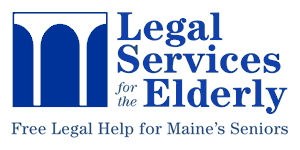What is a “Scam”?
A “scam” is when someone tricks you to get your money. Different scams will try to trick you in different ways, but the goal is always the same: they want your money. Most scammers use the telephone or the internet to get in touch with you. Often the scammer calls or writes from out of state or even outside the country. This means that if they manage to trick you, it is almost impossible to get your money back.
This section will tell you about some of the scams that affect older Mainers. Keep in mind, there are many other scams that are not listed here.
- Medicare scams
Older Mainers with Medicare are often a target for scam artists.
The scammer will call you and sound very official. They will say they are “from Medicare” or from the “health office.” Then they will offer to make some changes to your Medicare. Usually they will tell you that you can get more health insurance or prescription coverage for less money. But before those changes can happen, you will need to tell them your Medicare number and other personal information.
DON’T GET SCAMMED: NEVER give any personal information -- including your Medicare number -- in response to a phone call or email.
- Grandparent scams
Scammers will pull at your heart strings to get to your purse strings. This is what happens with the “grandparent scam.”
This scam starts with a phone call from someone who says that they are your long lost grandchild. You won’t know this person, but they will be very convincing. Sometimes they will know private things about your life. They will say something like, “I have a problem and you are my last chance! I need money!” These scammers will tell you that you have to help them because they are your family, and that’s what family does. By the end of the phone call, you might be so convinced that you will want to help them.
DON’T GET SCAMMED: NEVER wire money or give your personal information based on a phone call or email.
- Lottery/sweepstakes scams
Lots of people dream of winning the lottery. Scammers know this. They take advantage of that dream and make your life a nightmare.
This is what happens: someone calls you or you get a letter or email saying that you are a winner! You have been selected to win a huge amount of money!! Sounds good so far, right? “But,” they say, “there’s only one thing.” They will tell you that before they can give you your winnings, you have to send them money to pay “fees” or “taxes.” Or, you have to give them personal information, such as your Social Security number, bank account, or credit card numbers.
Sadly, many people fall for this. They send the money. Then the crook will say something like, “We made a mistake, you need to send MORE money.” Or, they say they never got the money and demand that you send it again. They will keep demanding more and more money until one day you realize your money is all gone.
These scammers know what they are doing. Once you fall for their trick, they will make your life miserable. Some will even threaten you with violence.
DON’T GET SCAMMED: If it sounds too good to be true, it probably is! Never send money or provide any personal information in response to a phone call or email that says you won a contest. Remember, you can’t win a contest that you did not enter and legitimate sweepstakes never ask for money up front.
If you would like to check out an offer that sounds too good to be true, call the Maine Department of Professional and Financial Regulation at 1-877-624-8551.
- Fake check scams
These kinds of scams start out in a number of different ways. The scam artist will contact you by phone, email, or mail. They will give you a long story about something that will hook you. The story changes but the catch is always the same: they need your help. They have a check that they need you to cash for them. They tell you to keep some of the money for yourself, and then wire the rest to them. The check will look real and might even fool your bank at first.
A little later, your bank will call to tell you that the check was no good. Your bank will tell you that you need to give them the money back. But you won’t be able to find the scammer, and you will be responsible for paying back your bank.
DON’T GET SCAMMED: There is never a legitimate reason for someone to give you a check or money order and ask you to wire them money in exchange. Do not ever send money or provide any personal information in response to a phone call or email.
- Charity scams
Many older people are very generous and regularly give donations to charity. Unfortunately, scammers will jump on the chance to exploit this generosity.
Charity scams are very common right after a disaster. In these scams, someone will call and ask you to give money to help the victims of the disaster. It sounds legitimate. But, the scammer will get pushy if you don’t give them money right away. And then once you give them a donation, they will continue to harass you until you donate more and more money.
DON’T GET SCAMMED: Before giving any money to charity do your homework. Real charities have to be licensed with the state. Check with the Maine Department of Professional and Financial Regulation’s Charitable Solicitations Program at 207-624-8525 to make sure that it’s a real charity.
